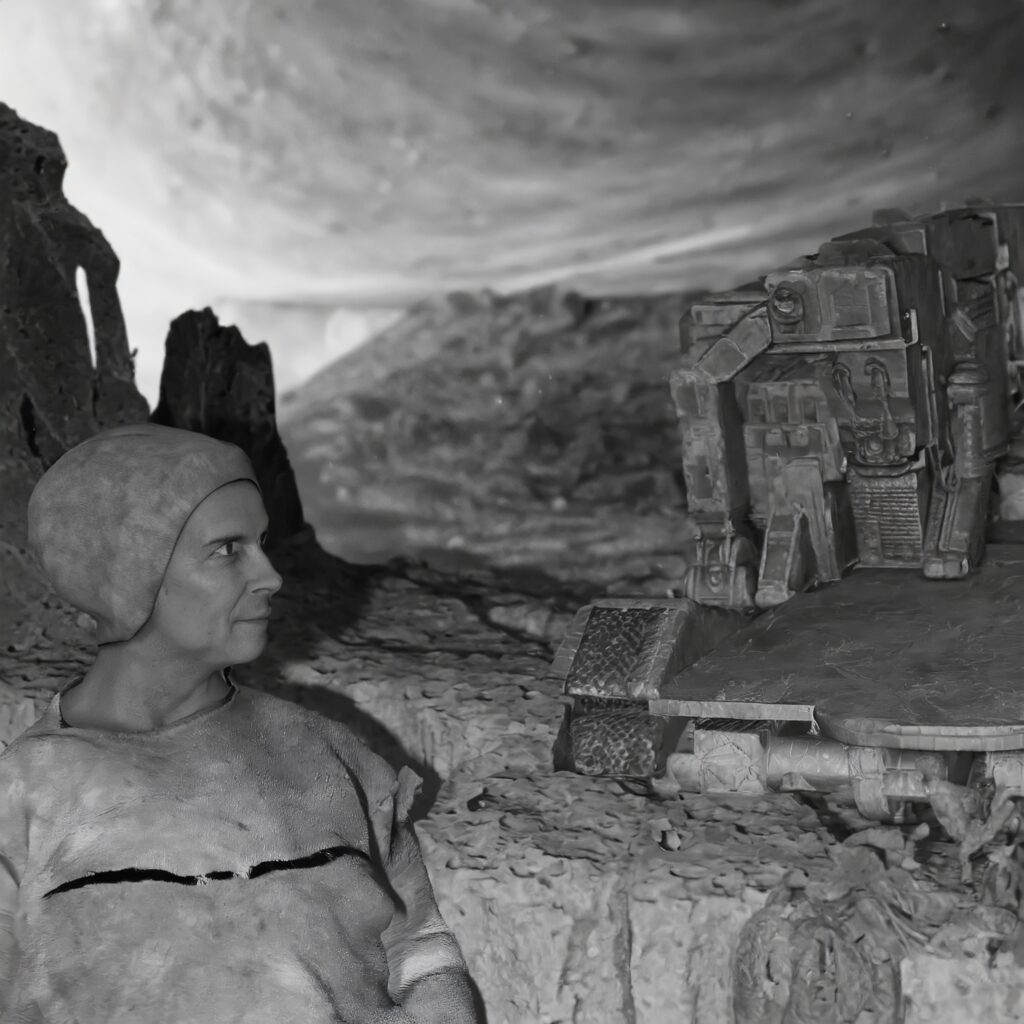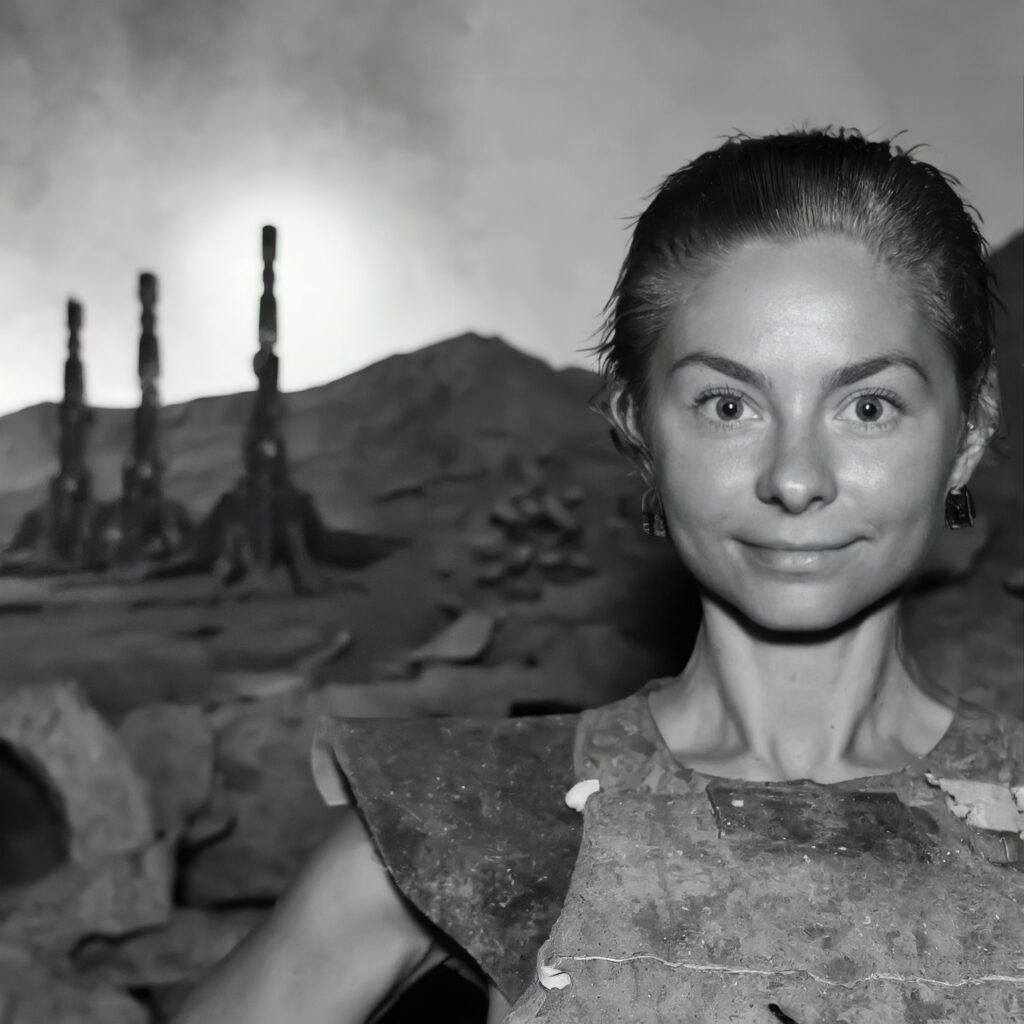Synopsis of film review
How does the film “Total Recall” explore the concept of identity within the framework of social categorization?
The film “Total Recall” explores the dynamics of dominance and subordination within social categorization through the complex interplay of the protagonist’s identities. The protagonist navigates between two distinct identities, Quaid and Hauser, which represent different roles and positions within society. These identities are not just personal constructs but are influenced by societal forces and the larger ideological framework.
Quaid, a construction worker, aspires to transcend his mundane life through fantasies of espionage. On the other hand, Hauser, his suppressed identity, seeks to challenge the profit-driven CEO of a Martian mining firm and activate an ancient oxygen reactor on Mars. Both identities are driven by utilitarian ideologies, but they manifest in different realms.
The film also highlights the role of memory manipulation in maintaining dominance and subordination. Quaid’s memory implant and the actors involved in suppressing or awakening Hauser’s identity contribute to the power dynamics within the narrative. The question of moral responsibility arises when Quaid’s actions are influenced by artificial memory manipulation, challenging conventional notions of identity and agency.
Overall, “Total Recall” presents a thought-provoking exploration of dominance and subordination within social categorization, emphasizing the fluidity and multiplicity of identity within a broader societal context.
Can you provide more information about the moral implications and responsibilities discussed in the film?
In the film “Total Recall,” there are several moral implications and responsibilities that are explored. One of the main themes is the question of moral responsibility for actions that have been forgotten due to artificial memory manipulation. The protagonist, Quaid, undergoes a memory implant procedure that alters his perception of reality and his own identity. This raises the ethical dilemma of whether Quaid can be held accountable for actions he has no recollection of.
Additionally, the film delves into the moral responsibility of those who manipulate and control memory. The character of Cohagan, the CEO of a Martian mining firm, suppresses Quaid’s true identity as Hauser and attempts to maintain control over him. This raises questions about the abuse of power and the responsibility of those in positions of authority.
Furthermore, the film explores the moral implications of aligning oneself with an ideological movement. Quaid’s suppressed identity as Hauser is aligned with a resistance movement against Cohagan’s profit-driven interests. This raises questions about the moral responsibility of individuals to stand up against oppressive systems and fight for justice.
Overall, “Total Recall” raises thought-provoking questions about moral responsibility, the manipulation of memory, abuse of power, and the moral implications of aligning oneself with different ideologies.
What are some of the philosophical themes and ideas that the film raises regarding the philosophy of mind?
The film “Total Recall” raises several philosophical themes and ideas regarding the philosophy of mind. One of the central themes is the question of identity and the nature of personal memory. The film explores the idea that identity is not solely based on individual memories but is also shaped by social situatedness and collective identity. It suggests that one’s role within a larger societal structure validates their claimed identity.
The film also delves into the concept of authenticity and the influence of memory manipulation on moral responsibility. It poses the question of whether one can be held accountable for actions that have been forgotten due to artificial memory implantation. This challenges conventional notions of identity, agency, and moral responsibility.
Furthermore, “Total Recall” explores the idea of multiple identities and the fluidity of identity. The protagonist oscillates between two distinct identities, and the film raises the question of whether one’s actions or memories define their true self. It suggests that alignment with an ideological movement may be more significant than the specific identity one identifies with.
Overall, the film engages with philosophical ideas surrounding identity, memory, authenticity, moral responsibility, and the fluidity of identity.
Film review
In the cinematic landscape, “Total Recall” emerges not merely as a classic in the science fiction genre but as a profound exploration of the philosophy of mind. The protagonist navigates a labyrinthine narrative, oscillating between two distinct identities for a significant portion of the film. These identities manifest in a complex interplay of dominance and subordination, each seeking avenues for expression within the confines of the story. Intriguingly, these identities are not mere ideological constructs; rather, they are situated within the broader framework of social categorization. This adds a layer of complexity, as it challenges the viewer to consider identity not as a self-imposed construct but as a product of societal forces. The film thus serves as a compelling dialectic on the fluidity and multiplicity of identity, set against the backdrop of a speculative future.
The film grapples with the intricate interplay of multiple identities, unified by an overarching ideological framework. Quaid, a construction worker, aspires to transcend his mundane life through fantasies of espionage. His ‘authentic’ self, Hauser, also seeks transcendence but in a different context: he aims to activate an ancient, alien-built oxygen reactor on Mars, thereby challenging Cohagan, the profit-driven CEO of a Martian mining firm. Both identities (Quaid and Hauser) are driven by a utilitarian ideology, albeit manifested in different realms. Hauser as the alternate identity of Quaid seems to is on one account with Cohagan in pursuit of profit. Though there is another side to Hauser which is an identity as a memory of a revolutionary. It is this version of Hauser that had a memory implant, leading to the creation of Quaid and the Quaid that ideologically aspires to rather than the version Cohagan aspires as one of his closest friends.
This suppression is facilitated not only by a memory implant but by a caste of actors who are for and against Hauser being awakend from the identity Quaid.
In a pivotal scene Quaid encounters Melina, a figure deeply entwined with his alter ego Hauser the revolutionary and not the Houser who does the bidding for Cohagan. While Quaid recognizes his duality with Hauser, he fails to remember Melina, eliciting her ire. This lapse in memory is further complicated when Quaid reveals his marital status, adding layers of emotional and ethical complexity. The film poses a tantalizing philosophical conundrum: can one be held accountable for actions forgotten due to artificial memory manipulation? This question resonates deeply, challenging our conventional understanding of identity, agency, and moral responsibility.
In a scene rife with philosophical intrigue, Quaid encounters an individual purporting to be a neuroanalyst from Rekall. This analyst presents Quaid with a mind-bending proposition: he is not actually on Mars but still strapped to a chair at Rekall, lost in a dream. To awaken, he must follow the analyst’s instructions. Complicating matters further, the analyst reintroduces Quaid to his estranged wife, who had previously attempted to kill him. This moment plunges Quaid—and the audience—into an existential quandary: is Quaid truly experiencing Mars, or is he ensnared in a vivid dream? Should he heed the analyst’s advice or continue his Martian quest? This cinematic crossroads is not merely a dramatic device; it mirrors the ubiquitous existential choices we all face, lending the film a layer of rhetorical sophistication.
In ‘Total Recall,’ the character Hauser presents an intriguing conundrum: is he a mere physical memory or a disembodied mind? The film tantalizingly leaves this question unanswered. Quardo, the leader of the resistance, posits that it is one’s actions, rather than memories, that define a person. According to this perspective, whether one identifies as Hauser or Quaid becomes secondary; what truly matters is one’s alignment with an ideological movement.
This notion of identity transcends mere memory, suggesting instead that a person is defined by their social situatedness. Authenticity, in this context, emerges not from isolated memories but from complex interactions within a social framework. One’s role within an in-group, which itself is part of a larger societal structure, validates one’s claimed identity, whether past or present.
The significance of personal memory, then, is subsumed under a broader collective identity. In the world of ‘Total Recall,’ your allegiance—to either Cohagan’s political community or against the corporate interests he represents—becomes the ultimate marker of your identity. Personal memory serves merely as a token, a placeholder, within the ideological fabric of a larger political community.
The final scene of ‘Total Recall’ offers an intriguing counterfactual interpretation of Cohagan’s true nature. As he prepares to shoot Quaid, Cohagan utters a line that seems incongruous with the gravity of the moment. Quaid questions the veracity of the secret reactor’s purpose—will it destroy Mars or provide it with oxygen? Cohagan retorts, ‘Who cares what you believe? In thirty seconds, you’ll be dead, and I’ll blow this place up and be home in time for corn flakes.
The phrase ‘home in time for corn flakes’ is particularly enigmatic. As the CEO of a Martian operation, Cohagan would hardly be concerned with such mundane matters. This raises the tantalizing possibility that Cohagan is not a separate entity but rather a memory implant within Quaid. Could it be that Quaid is still in the ‘Rekall’ vacation lab on Earth, and Cohagan’s statement reflects a collapsing of waking desires for quotidian comforts like corn flakes?
In this interpretation, Quaid would awaken from his Martian reverie to find himself back on Earth, sharing a bowl of corn flakes with his wife before heading off to his routine job as a construction worker. The line thus serves as a subtle clue, inviting the viewer to question the layers of reality and identity presented in the film.

